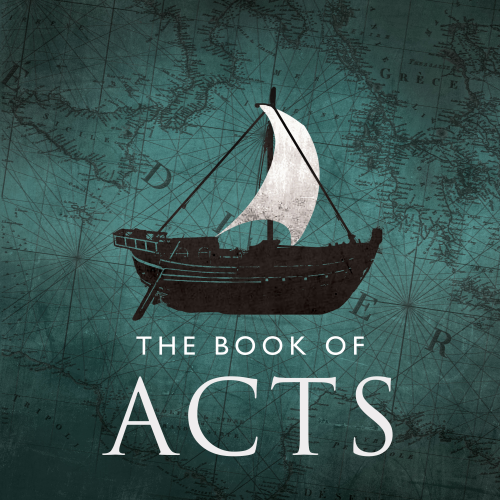
Acts (2005 - 2010)
How a Spirit-Empowered Church Turns a Crazy World Right-Side Up
The 1-st century church was born into a far darker world than ours. But Jesus promised that the gates of hell would not prevail against His church, and in spite of hell's best efforts the church exploded to the ends of the earth by the time Colossians was written. If the church today is going to continue the conquest, we need to start taking the Holy Spirit, spiritual gifts, spiritual warfare, and the demonic as seriously as the early church did. That's why we need Acts — to teach us about Spirit-powered evangelism, church growth, apologetics, giftings, calling, teamwork, guidance, and heavenly warfare, and to show us how the Holy Spirit uses fishermen and tax collectors to turn the world right-side up.
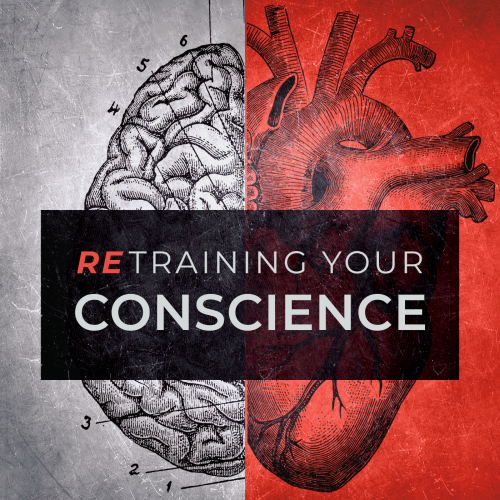
Retraining Your Conscience (2002)
This must-hear series covers everything from how to retrain a dull, oversensitive, or social conscience, to why a weak or legalistic conscience always leads to more sin and less holiness. It details how to deal with legalism in your friends, how to recognize it in yourself, how to recover from legalism without becoming a libertine, and how to grow in your appreciation for the freedom God gives you. This is an important listen for any church or family striving for real holiness instead of man-made counterfeits; for any person whose true liberties are being denied by friends or community; for any new Christian trying to recalibrate his moral sensitivities or any old Christian trying to renew an old dull conscience; for any person trying to recover from a legalistic or a "we're-not-under-the-law-but-under-grace" background... or just any Christian striving "to have a conscience without offense toward God and man." (Acts 24:16)

Life of David (2010 - 2015)
A Course in Practical Christianity, By King David
From shepherd boy to warrior king, David's life story is the story of sin, grace, and spiritual power at work in every area of life: Battles with giants. Leadership. Betrayal. Bad authorities. Sexual sin. Repentance. Spiritual warfare. Friendship and conflict. Rebellious kids. Politics. Relationships between men and women. Falling and redemption.
David's saga teaches us about just war, voting ethics, victim's rights, re-training your conscience, using imprecatory Psalms, how the demonic affects Christians, and how and when to practice civil disobedience. While Saul models how to be the impressive Christian-on-your-own-terms that God rejects, David shows us to live life — all of it — as a very-human man after God's own heart.

Women of Faith (2021 - 2022)
Does Deborah set a precedent for female judges and magistrates? Was it wrong for Abigail to cross her husband and reprove David? Can a woman be the head of her own household? Is it bad for a wife to be more spiritually mature or gifted than her husband? Why did Luke specify that Martha owned her own house? With his trademark practicality and theological precision, Dr. Kayser corrects both feminism and hyper-patriarchy, drawing lessons from biblical heroines on how to rise above terrible pasts, abusive husbands, and civic chaos, and build the kingdom through hospitality, business, church, tent-pegs, raising mighty children, and more. Get clarity on the essential male-female distinctions (and why they're wonderful) while also clearing away any unbiblical constraints that may be holding you back from serving God to the uttermost.

Joshua (2022 - 2023)
In Joshua we see how God leads His people to prepare for conquest, conquer the land, settle the land, and retain the land. This book is a picture of Christ's promise that the meek shall inherit the earth, and a foreshadowing of the church eventually inheriting the entire planet. In this (still ongoing) series, Dr. Kayser draws out Joshua's place in the arc of redemptive history, as well as drawing out Joshua's lessons on servanthood, leadership, calling, eschatology, courage, dominion, boundaries, the presence of God, covenantal inheritance, and more.

Psalm 23 (2013)
A series of short communion meditations on Psalm 23 (each message 10 minutes or less), this series is a deep dive into God's care, comfort, protection, and provision for His sheep. Go deeper into the loving character of God, His chesed covenant love and care for His people, spiritual depression, God's attributes, spiritual warfare and God's protection of His people, and more.

Five Solas (2014)
In these five messages, Dr. Kayser gives a practical and pastoral walk-through of the foundational doctrines of the Reformation known as the Five Solas.
Sola Scriptura: Living By Every Word
Protestants often give lip service to the fact that the Bible gives the answers to all of life. But what exactly does that mean? If the Bible is not a textbook, in what way does it give the foundation for all thinking? This sermon unpacks the meaning of Christ’s revolutionary paradigm for life.
Sola Gratia: Living By Grace
When people think of “grace,” they often think of the beginning of our Christian walk (regeneration, conversion, justification). This sermon deals with the comprehensive scope of God’s grace and calls us to live by grace in all that we do throughout our Christian life.
Solus Christus: Christ Our Sufficiency
This sermon traces the "I AM" statements in the Gospel of John and shows how each one emphasizes both the sufficiency of Christ and the exclusivity of His provision.
Sola Fide: The Old Perspective According to Jesus
Sola Fide, or Faith Alone, is the crown jewel of the Reformation, yet it is being systematically eroded in the evangelical church. This sermon hits the controversy head on as it discusses the historic doctrines of forensic justification and demonstrative justification
Soli Deo Gloria: This sermon covers the practical ramifications of the Reformation doctrine of Soli Deo Gloria, or “To the Glory of God Alone.”
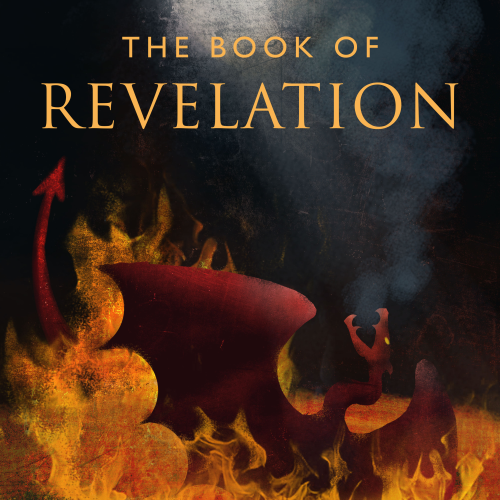
Revelation (2015 - 2018)
You can understand Revelation just like the 1st century Christians did: not as a gloomy end-times guide, but as a hopeful spiritual-war manual on how to overcome in crazy times.
People get confused by Revelation when they rush past the 33 interpretive keys in the first chapter to get to the "interesting" parts. Drawing from the best of every school of interpretation, Dr. Kayser starts this series with a 14-sermon crash course on biblical interpretation through Revelation 1, laying out every key so you can understand the book as John's original audience did — not as an end-times guide, but as a hope-filled practical manual on spiritual warfare, worship, prayer, perseverance in trial, resistance to tyranny, God's preservation of the church, and Jesus' victory over all His enemies.
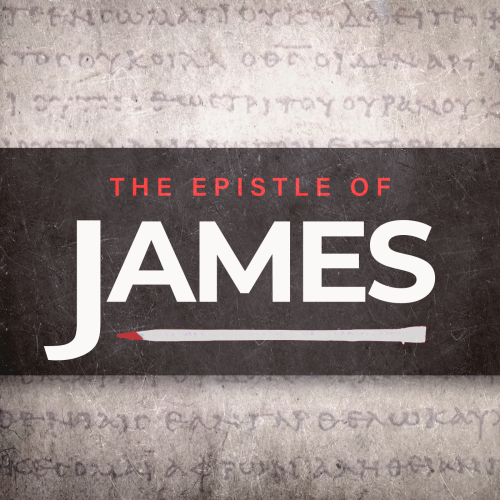
James (2003 - 2004)
Do you have a counterfeit faith or a true faith? Where is the evidence of your faith? Where is the evidence that you are truly justified and indwelt by the Spirit? That's the theme of James.
Some call James "faith with work boots." James is not about how to get saved, but about showing that we have faith by a transformed life. You can only be saved by what Jesus has done. But once you are saved, you put on your work boots and act by grace in all of these practical areas of life — in ways only the Spirit can make possible. James shows us how having true grace and faith change how you go through trials, use your tongue, relate to others in the church, stop judging others, trust God with the future, glory in every circumstance, stop envying others, rejoice even when things are going wrong. This series draws out James's wisdom on all these topics, plus
conflict resolution, resisting temptation, patience, repentance, restoring backsliders, judgment and liberty, and more.
Most importantly, it shows the difference between fake faith and true God-given faith, and why both Federal Vision and the Carnal Christian Theory go wrong (partly by missing the chiastic structure and heart of the book) on the relationship between faith and works.

Controversies on Passion Week (2015)
This short series (three sermons) explores three big controversies related to Passion Week:
- The controversial issues related to the chronology of that week that atheists have claimed were contradictions (e.g. If we hold to a Friday crucifixion, and Jesus being in the tomb three days, was Jesus actually raised on Palm Monday?)
- The differences between the Dispensational and Covenantal views of Palm Sunday and why they matter (Was the Kingdom presented on Palm Sunday withdrawn or was it inaugurated exactly as anticipated in the Old Testament?)
- The implications of the grave clothes (e.g. Why did John conclude on seeing the grave clothes that Jesus had risen, when the women saw the same evidence and concluded that His body had been taken away? Why were the grave clothes left there?)

Beatitudes (2010)
The Beatitudes were given to refute the four man-made counterfeits for bringing in the kingdom — legalism, compromise/progressivism, revolution, and separatism/retreatism — by pointing to Jesus instead. This series is about the marks of a true Christianity made possible only by grace. And it's about how to enjoy God's true kingdom, a kingdom that brings us comfort, stewardship of the earth, satisfaction in righteousness, mercy, closeness to God, and the wonderful title "sons of God."

Bible Survey (2019 - 2021)
A Biblical-Literacy Crash Course in 66 Sermons
If you ever wanted to know what the whole Bible says... actually, just read it. But if you're stumped on the message of Haggai or Job, or want to understand the progressive arc of the books in the Pentateuch, or how the different covenants built on each other, or how the prophets fit into everything — if you didn't realize that 2 John is full of practical advice for single mothers (and their pastors), or that Revelation is a spiritual warfare manual, or you've wondered about supposed contradictions between books — this series will help you understand both each puzzle piece individually, and also how they build together into one breathtaking whole.
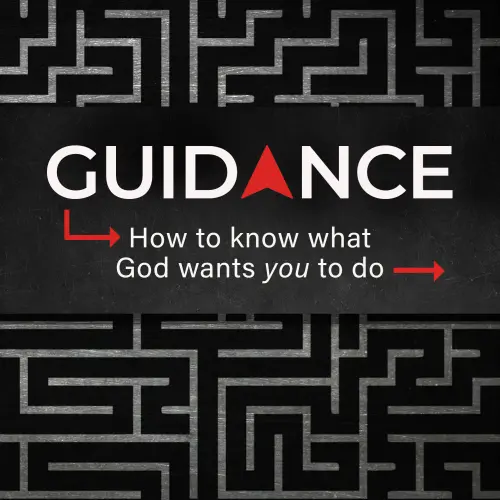
Guidance (2003)
If you pray and fast for God's guidance, what do you expect that guidance to look or sound like?
It's possible to place so much emphasis on the only objective rule of life — Scripture — that we can struggle to understand the role of the subjective in God's leading. Does God still speak to Christians individually, and if so, how? How do we expect (or do we expect?) God to give us individualized guidance? How are we supposed to determine our individual calling (or is it just up to us to choose)? How are we supposed to interpret or evaluate stirrings, burdens, peace, illumination, or checks of the spirit?
In this 3-part series, Dr. Kayser digs into the much-neglected role of the subjective side of God's leading. In Part 1, laying the theological foundations, he:
- explains the difference between inspiration and revelation
- gives 13 Scriptural examples of how God continues to give subjective (not inspired) revelation, including the law written on the heart, faith, assurance, conviction, and illumination
- and explains the different ongoing roles of Scripture, circumstances/providence, and the Spirit's presence and speaking/leading in our lives.
In Parts 2 and 3, he goes over 30 questions to help you evaluate guidance and direction.
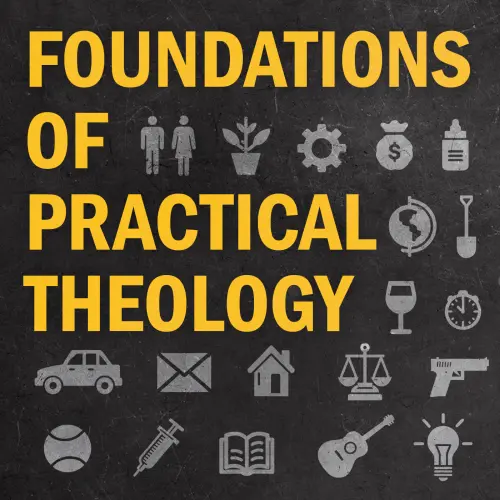
Foundations of Practical Theology (2003)
At the founding of Dominion Covenant Church twenty years ago, Dr. Kayser preached this series of messages to walk his congregation through some of the foundations of practical theology, the Christian life, and body life. With messages on love, prayer, grace, baptism, spiritual warfare, mercy ministry, counseling, apologetics, the Great Commission, education, success, Sabbath, and more, this series is a collection of helpful single-sermon summaries of vital doctrines of the Christian life.

Esther (2002)
Esther is one of Scripture's most remarkable stories of God's hidden hand working incredible things, not through miracles but through providence and courageous vessels. In this series Dr. Kayser explores all this plus the correct chronological dating of this book, how Christ is foreshadowed in the book of Esther, the prophetic significance of the feast of Purim (and how all of the feasts foreshadowed different parts of Christ's work), and the future redemption of Israel.

The Christian and Prosperity (2001 - 2002)
One of Dr. Kayser's most practical series, "The Christian and Prosperity" tackles the problems with both prosperity gospel and poverty gospel, the controversies surrounding blessings, cursings, and grace, and the many biblical laws related to economics. Dr. Kayser explores stewardship, dominion, accounting, risk, developing sales resistance, and the laws of sowing and reaping.

Advent
This Advent and Christmas season, up the octane of your family worship with these inspiring Christmas sermons — not so much beautiful reflections or meditations on the Christmas story, but challenging, practical sermons about how Christ's coming to earth should change our lives.